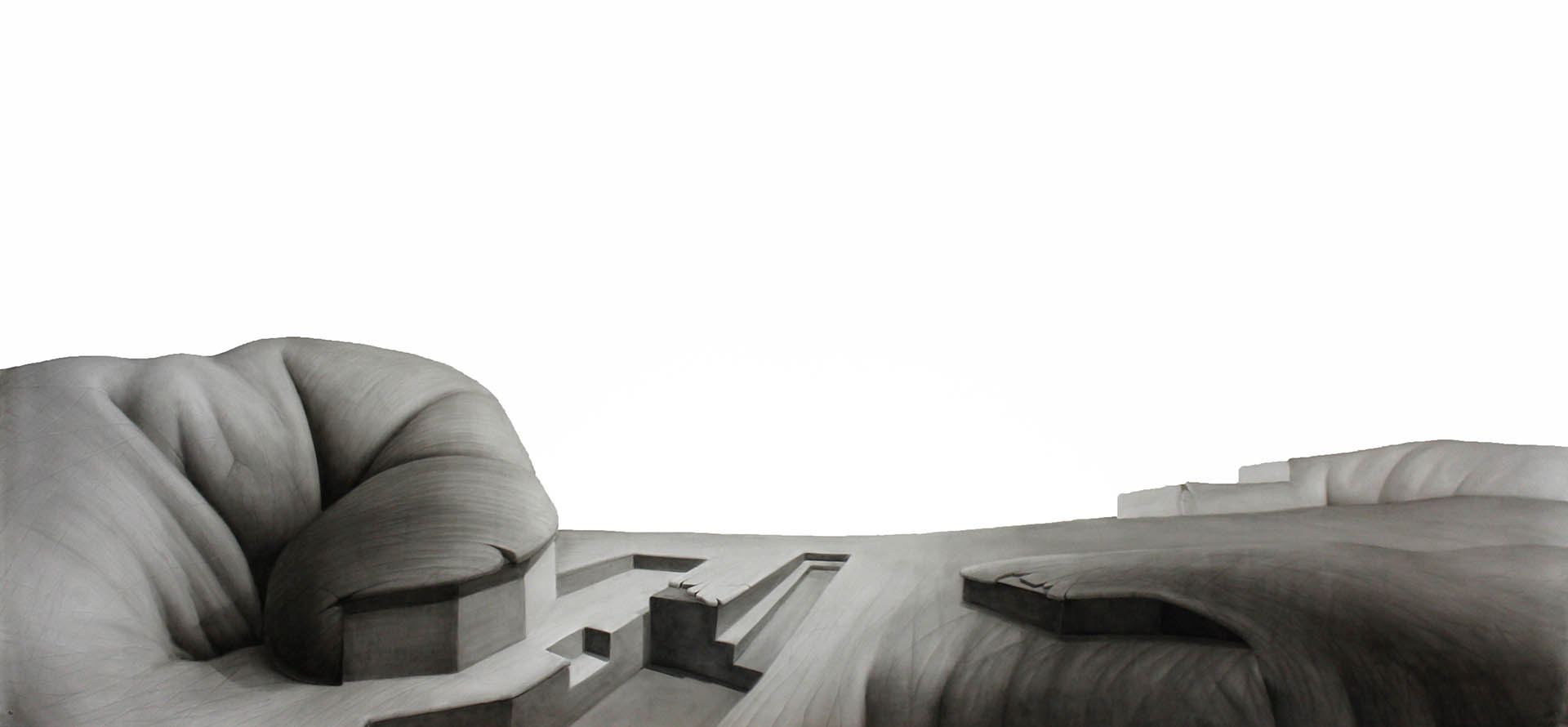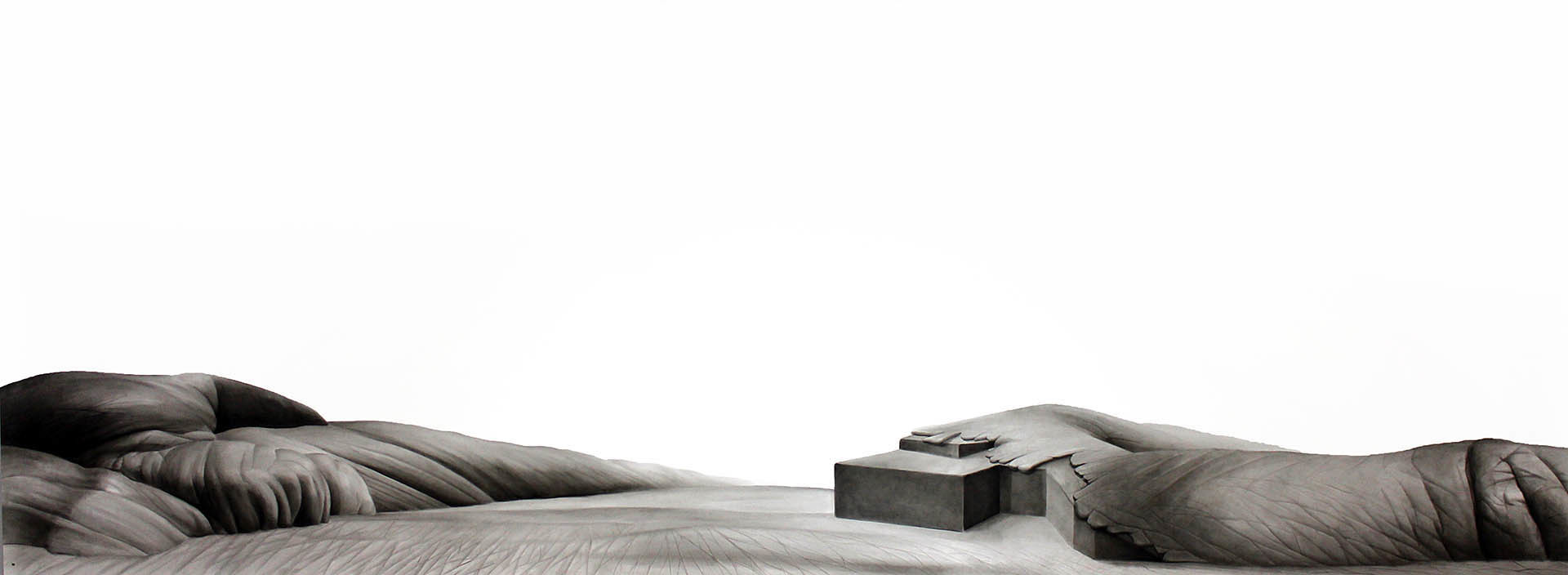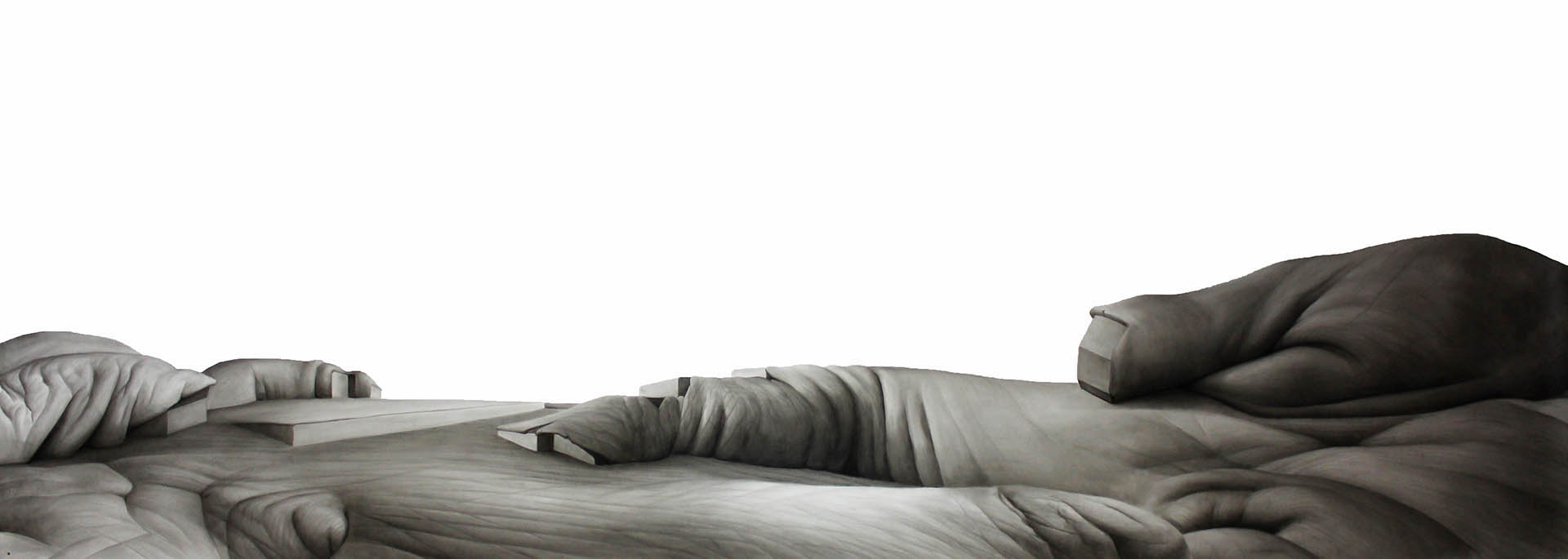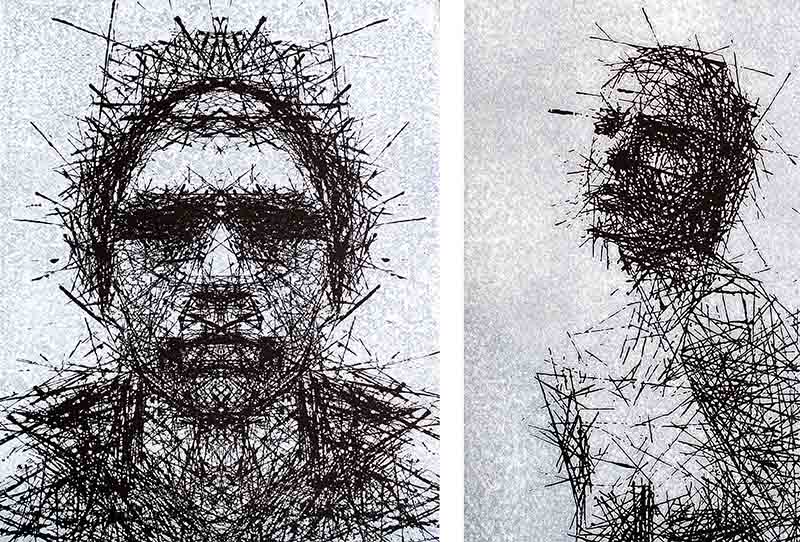
Untitled #4
Eric Brennan, 2015
Pastel and charcoal on paper, 120″ x 57″
Image © 2015, courtesy of the artist
Untitled #1
Eric Brennan, 2014
Pastel and charcoal on paper, 168″ x 57″
Image © 2015, courtesy of the artist
Untitled #2
Eric Brennan, 2014
Pastel and charcoal on paper, 192″ x 57″
Image © 2015, courtesy of the artist
Untitled #3
Eric Brennan, 2014
Pastel and charcoal on paper, 168″ x 57″
Image © 2015, courtesy of the artist
About the Artist
Working in pastels and charcoal, Eric Brennan depicts the power of humans to alter the natural landscape. He draws a visual connection between the denuded land and the human hand, creating topography with the semblance of skin, knuckles, fingers and palms. Brennan describes his work as a nod to Romanticism and its depictions of Mother Nature imposing her will on defenseless landscapes and their unfortunate inhabitants. Is the absence of Mother Nature in Brennan’s landscapes a sign that we can bend her to our will with modern-day industry and technology? Or are we witnessing the calm before a storm created by our own reckless handiwork?
Explore These Artworks
In the artist’s words:
“I explore the Romantic concept of the sublime; beauty found in nature’s capability of generating the sensations of awe and terror in the beholder. I observe how this experience and relationship has changed with the advancement of technology and human progress. Landscape was viewed as a source of inspiration and wonder, but recent generations have become detached and see it as a resource to be consumed. The proportion and rate at which we are able to excavate and modify our landscape now provides a new subliminal experience, one that provokes a new sense of awe and terror from our insatiable collective appetite.”
“I compare the unique qualities of human skin to the topography of our world to reveal our inherent connection to the earth.”
In progress:
In a new series of work, Brennan is exploring a portraiture technique inspired by “Muir webs.” (A Muir web is a visual mapping of the connections between species or habitats in an ecosystem.) This technique highlights the dual role of humans as a connected part of the ecosystem and as the steward of that ecosystem.
Interconnected, 2015, (woodblock prints, sizes variable), Image © 2015, courtesy of the artist
From Global Footprint Network:
One of the components of the Ecological Footprint is built-up land—the productive area currently occupied by human infrastructure. Built-up land means less land is available for food, resource regeneration or forests to absorb carbon dioxide emissions. Clickhere to read about our work with cities.
Reserved for art-interpretive content.
Using sustainable building products, such as products made from bamboo, preserves our forests and reduces our ecological footprint.
Featured Actions:
* Use sustainable building products!
* Your pledge will be counted in Earth Day Network’s “A Billion Acts of Green” campaign. Learn more about this campaign by clickinghere.
Suburban sprawl has transformed the landscape and decimated the natural environment. In addition, suburban life has a substantial carbon footprint. Can we create a different future through thoughtful urban planning?















